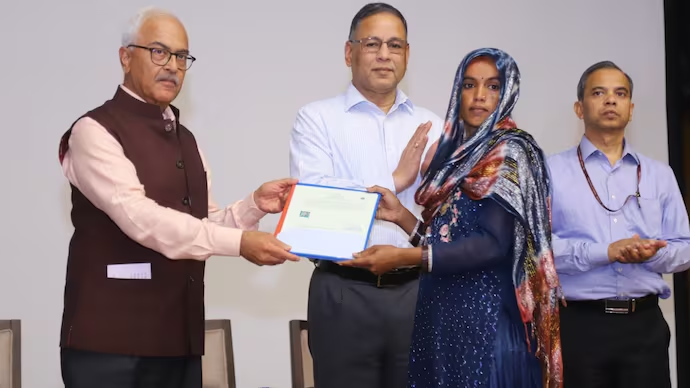Newsmatro

In a significant development, the first set of citizenship certificates under the Citizenship (Amendment) Act (CAA) has been issued to 14 individuals.
Union Home Secretary Ajay Kumar Bhalla handed over these certificates to the recipients after their applications were processed online.
This milestone event occurred nearly two months after the Centre notified the rules governing the implementation of the CAA.
The Citizenship (Amendment) Act, passed by Parliament in December 2019, aims to provide a fast-track pathway to Indian citizenship for minorities persecuted on religious grounds in Pakistan, Bangladesh, and Afghanistan.
Under the provisions of the CAA, individuals belonging to Hindu, Sikh, Jain, Parsi, Buddhist, and Christian communities who entered India on or before December 31, 2014, due to facing religious persecution in their home countries are eligible to apply for citizenship.
The Union Ministry of Home Affairs (MHA) issued the notification of rules on March 11, marking a crucial step in the operationalization of the CAA.
The delay in notifying the rules had caused significant anticipation and debate surrounding the implementation of the legislation.
The issuance of citizenship certificates to the 14 individuals on Wednesday signifies a tangible step forward in realizing the objectives of the CAA.
Expressing her joy and gratitude, one of the applicants, Bhavna, emphasized the transformative impact of acquiring Indian citizenship.
She highlighted the opportunities for education and personal growth that citizenship in India has unlocked for her, contrasting her experiences in Pakistan where educational opportunities for girls were limited.
However, it’s important to note that the Citizenship (Amendment) Act has been a subject of intense debate and widespread protests across India.
Critics argue that the legislation violates the secular principles of the Indian Constitution and discriminates against Muslims by selectively granting citizenship based on religious identity.
In response to the implementation of the CAA, several state governments, including the Pinarayi Vijayan-led Kerala government, have challenged its legality in the Supreme Court.
Additionally, political leaders such as senior Congress leader P Chidambaram have pledged to repeal the CAA once their party assumes power.
Despite the controversies and legal challenges, the Narendra Modi-led BJP government has steadfastly defended the implementation of the Citizenship (Amendment) Act.
Union Home Minister Amit Shah reiterated the government’s commitment to providing refuge and citizenship to minorities persecuted on religious grounds in neighboring countries.
As the issuance of citizenship certificates marks a significant milestone in the implementation of the CAA, the debate surrounding its implications for India’s secular fabric and constitutional principles continues to unfold.